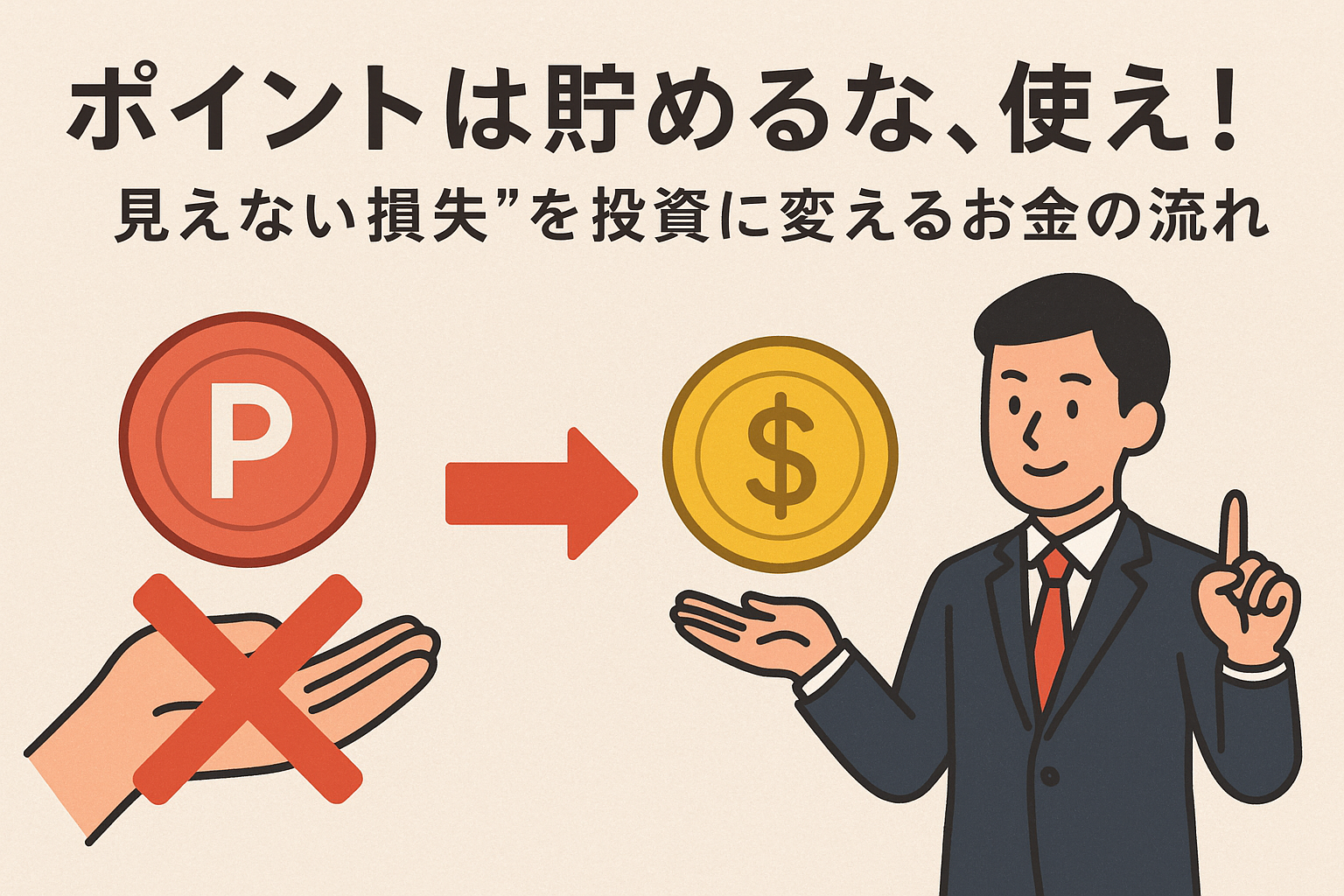皆さん、ポイントってどのくらい貯めてますか?
楽天ポイント、PayPayポイント、Tポイント、クレカのポイント…。
「あとで使おう」と思って放置しているうちに、気づけば期限切れやルール改定で**“消えていた”経験、ありませんか?
実はこれ、お金の流動性を止めてしまう行為なんです。
🪙 ポイントは「通貨」ではなく「企業の負債」
ポイントは現金のように見えて、実は企業が発行する**“借用書”**のようなもの。
つまり、
- 利子はつかない
- 使えない場所が多い
- 企業が倒産したら価値ゼロ
- 期限がある
という、圧倒的に流動性の低い資産です。
楽天を例にすると、企業側は「未使用ポイント」を会計上“負債”として計上しています。
つまり、あなたがポイントを持ち続けることは、楽天が“あなたのお金”を借りている状態なんです。
💥 「ポイント失効=見えない損失」
例えば、楽天ポイント。
有効期限を逃したり、期間限定ポイントを使い損ねたりして、年間数千円分が失効している人も少なくありません。
これ、表面上は「失った気がしない」けれど、実質的には現金を落としたのと同じ損失です。
✈️ 例外:目的が明確なら“価値は数倍”
もちろん、すべてのポイントを即使う必要はありません。
たとえば——
- 家族旅行でマイルを使ってビジネスクラスに乗る
- 予定していた家電の買い替えにポイントを充てる
など、明確な使い道と期限が決まっている場合は、現金よりも高い価値を発揮します。
でも、これはあくまで「使う予定がある」前提です。
なんとなく貯めておくのは一番NG。
💰 ポイントを使って“現金を浮かす”のが正解
最も賢いのは、
👉「ポイントを先に使って、現金を温存」すること。
浮いた現金は、**“自分が動かなくてもお金が増える仕組み”**に回す。
たとえば——
- 株(配当・値上がり益)
- 債券(利息収入)
- 不動産(家賃収入・資産性)
- 金などの現物資産
こうした「資産性のあるもの」に交換していけば、
ポイントを貯めるよりも、はるかに人生が豊かになります。
🧭 まとめ
- ポイントは「現金の代わり」ではなく「企業の負債」
- 利息もつかず、期限もあり、企業倒産でゼロになるリスクも
- 明確な目的があるとき以外は、すぐに使うのが正解
- 浮いた現金を資産運用に回すことで、お金が働く状態を作れる



コメント